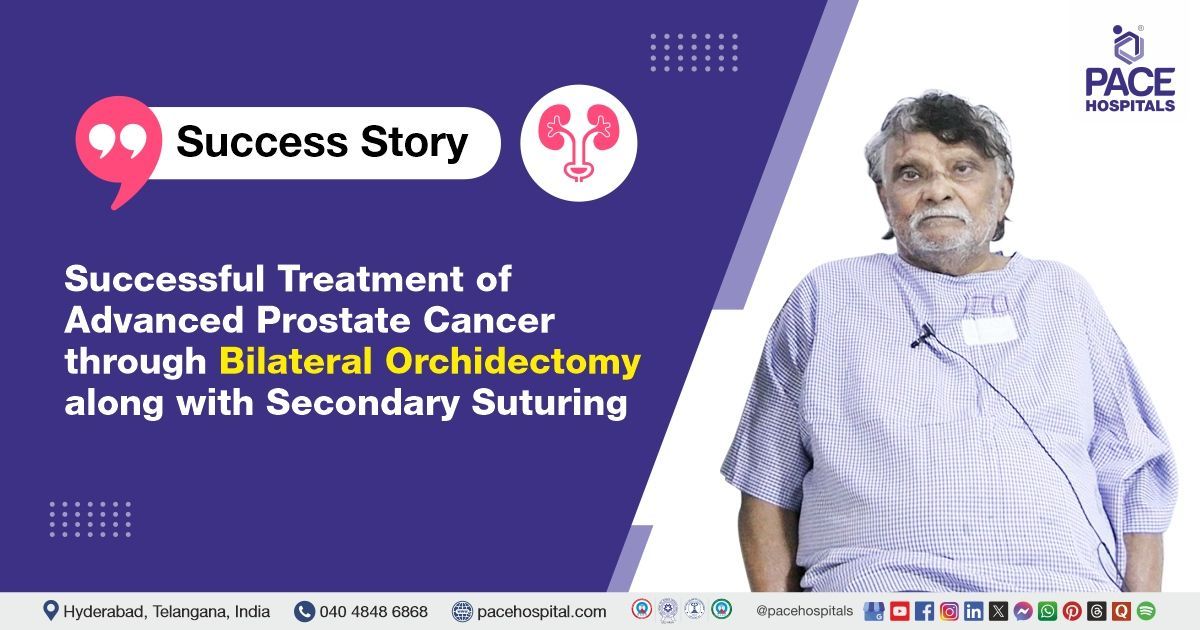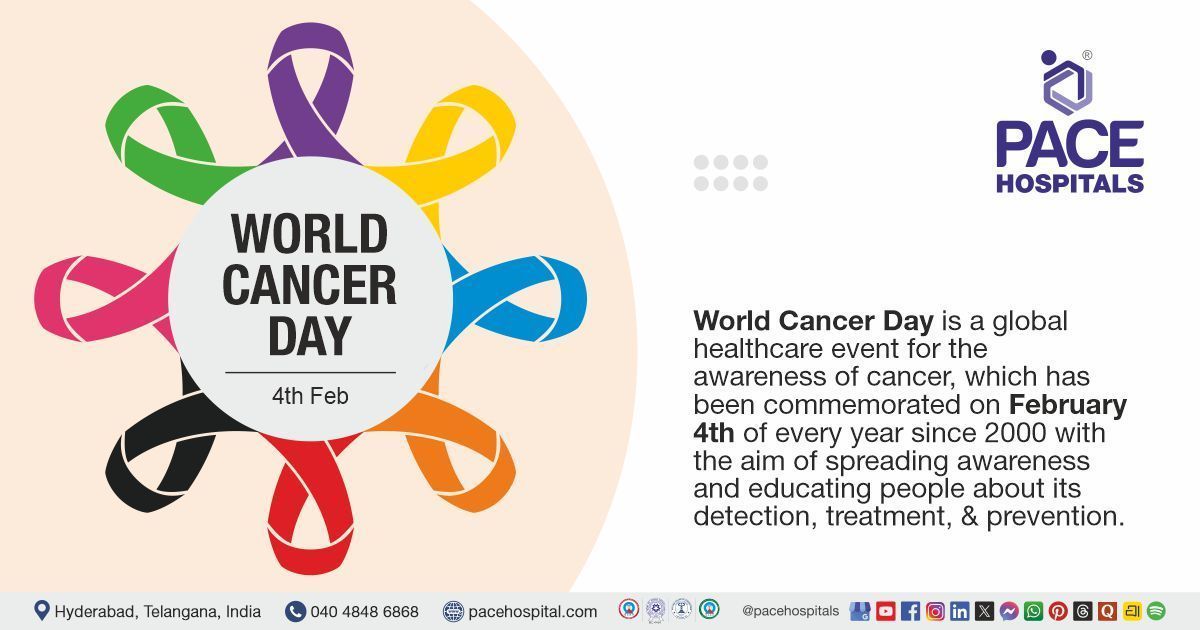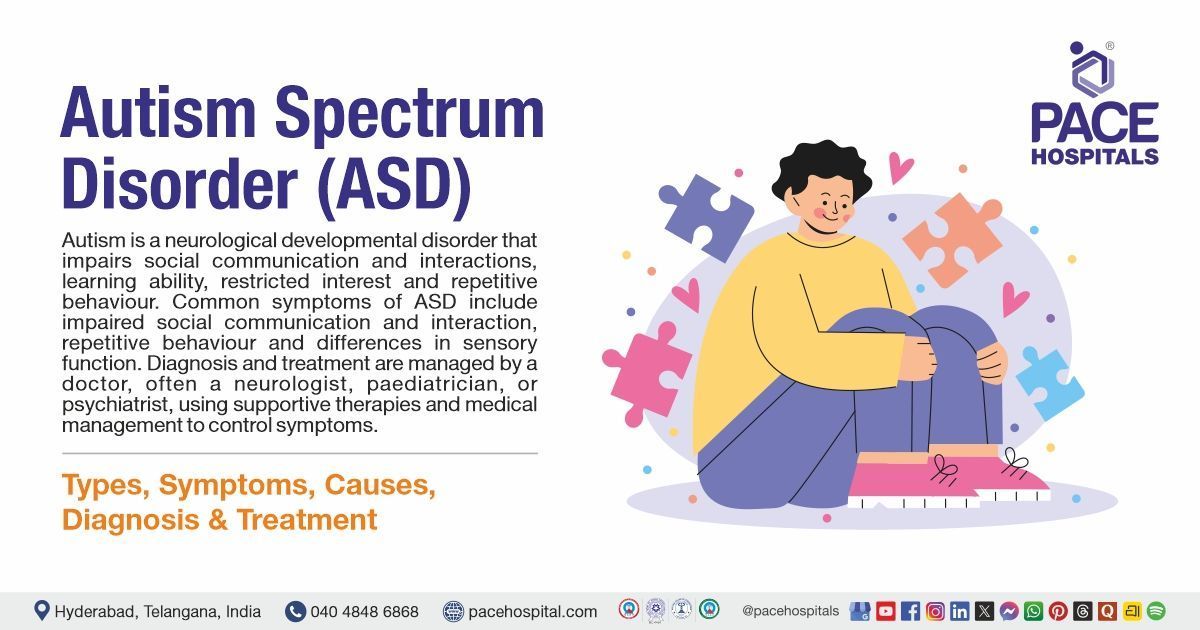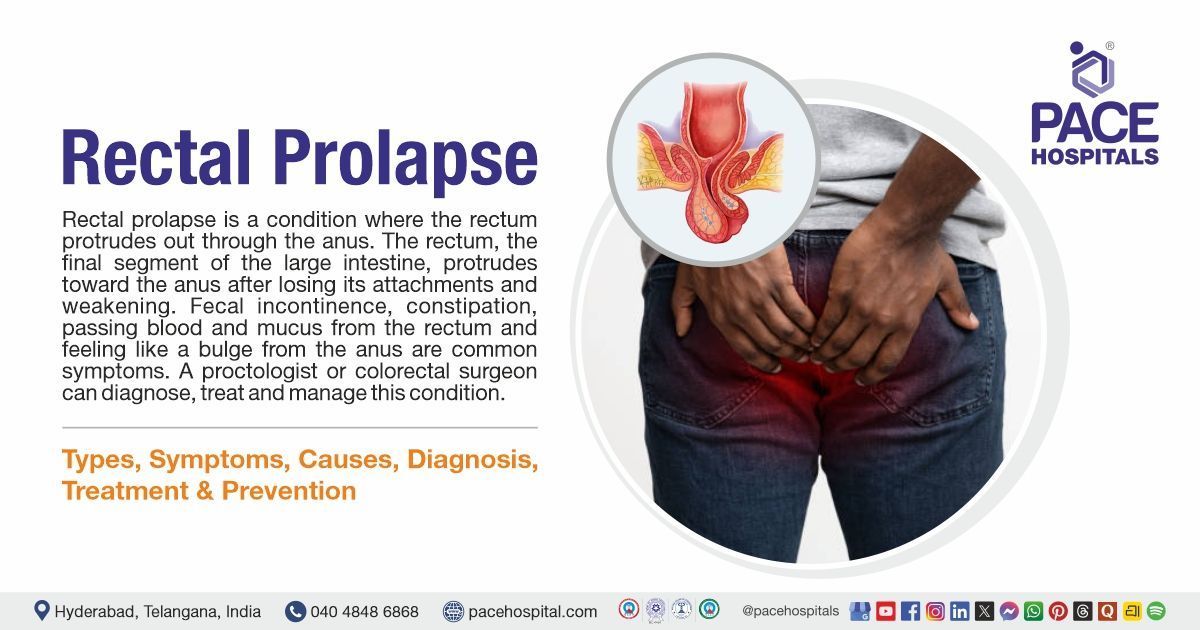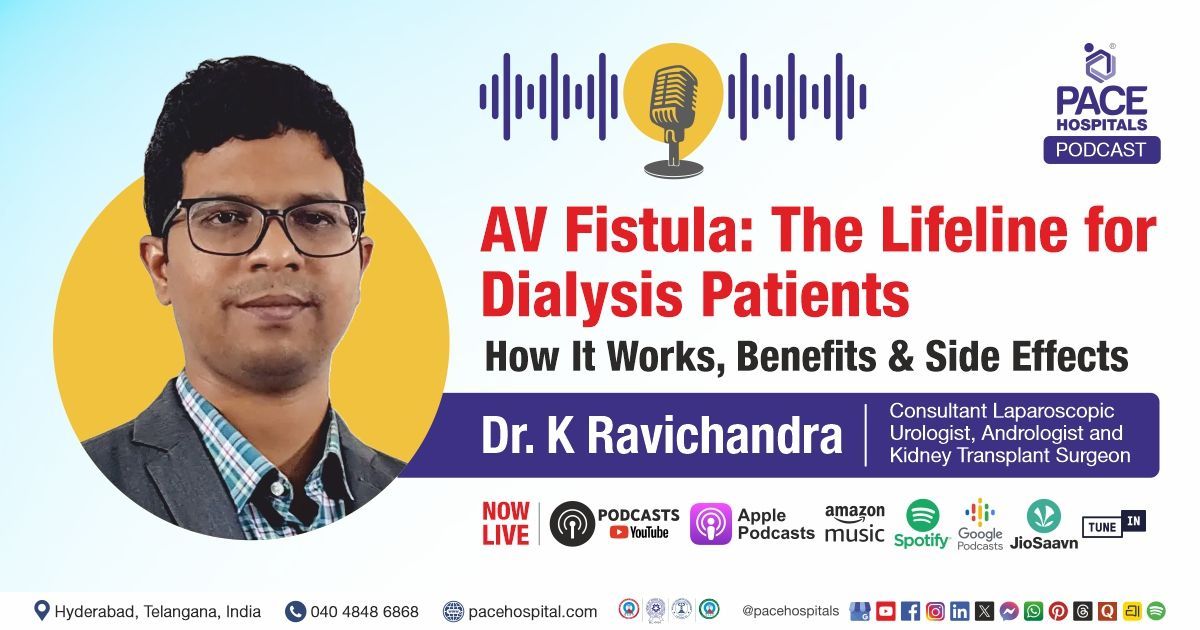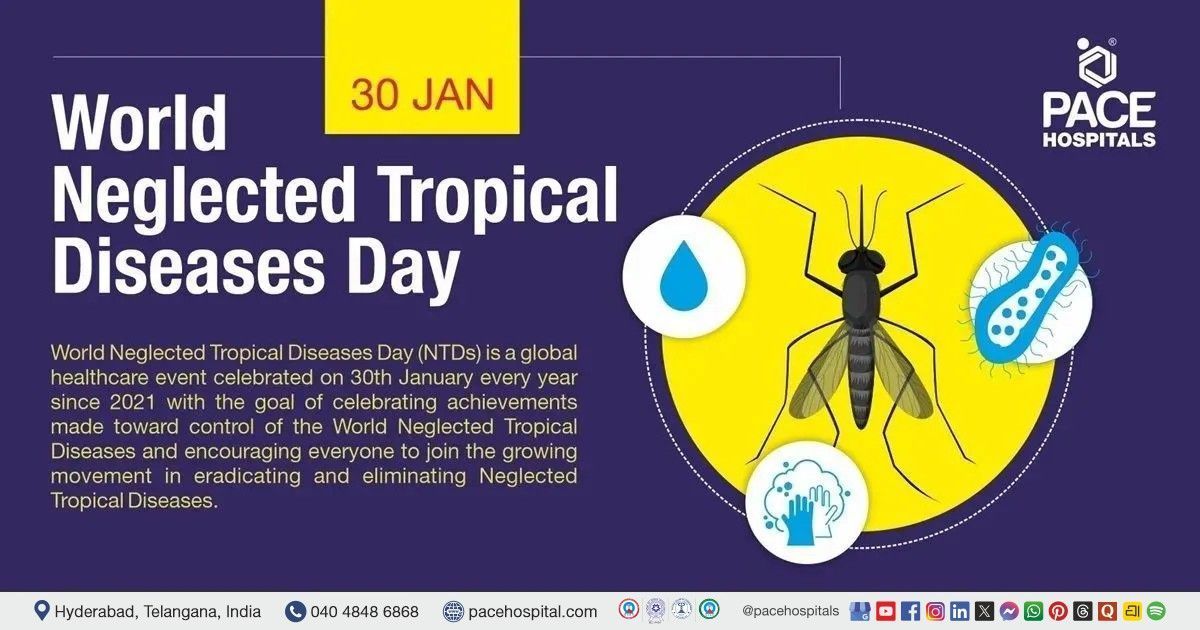Advanced Prostate Cancer Treated with Bilateral Orchidectomy with Secondary Suturing
PACE Hospitals
The Urology team at PACE Hospitals successfully performed a
bilateral orchidectomy with secondary suturing
on a 75-year-old male patient diagnosed with metastatic prostate carcinoma and multiple skeletal metastases.
Chief Complaints
A 75-year-old male patient with a known history of prostate carcinoma presented to
PACE Hospitals, Hitech City, Hyderabad, for a bilateral orchidectomy.
On examination
Upon admission to PACE Hospitals, the patient's vital signs were stable. During the general examination, a hard and nodular prostate was detected through a digital rectal examination (DRE), a common sign of advanced
prostate cancer. This finding required further diagnostic tests, including prostate-specific antigen (PSA) testing, a biopsy, and imaging studies to confirm the cancer and determine how far it had spread. A hard, nodular prostate often indicates a more aggressive form of cancer that may have extended beyond the prostate gland.
Diagnosis
A detailed physical examination indicated signs of prostate cancer, which was later confirmed through diagnostic tests as metastatic prostate carcinoma with widespread skeletal involvement. A PSMA PET scan revealed metastases in multiple bones, including the spine, pelvis, hips, skull, humerus, scapula, sternum, ribs, sacrum, and femur, indicating an advanced stage of the disease.
Medical Decision Making (MDM)
After consultation with the consultant urologist, Dr. Kataradu Ravichandra, and other specialists, Dr. Ramesh Parimi, a comprehensive evaluation was carried out to determine the most appropriate treatment plan for the patient. Based on their collective clinical expertise and the patient’s advanced disease status, it was concluded that a bilateral orchidectomy with secondary suturing would be the most effective course of treatment for metastatic prostate carcinoma with multiple skeletal metastases.
Bilateral orchidectomy was chosen as a form of androgen deprivation therapy to significantly reduce testosterone levels, which fuel the growth of prostate cancer. Secondary suturing was planned to allow initial wound stabilization and minimize the risk of postoperative infection, given the patient’s compromised health and delayed healing capacity due to advanced malignancy.
Surgical Procedure
All necessary preoperative investigations were completed, and a detailed consultation with the urology team was conducted. The patient subsequently underwent a bilateral orchidectomy along with secondary suturing for advanced prostate cancer treatment.
Bilateral orchidectomy, a surgical intervention for metastatic prostate cancer, involves the removal of both testes to achieve hormonal suppression by significantly lowering testosterone levels, which drive cancer progression. Secondary suturing was employed to promote optimal wound healing and reduce the risk of postoperative infection. Together, these procedures were aimed at slowing tumor progression, alleviating symptoms, and enhancing the patient’s overall quality of life.
Postoperative Care
The patient’s initial recovery after surgery was smooth with no complications. However, four days later, discharge was observed from the scrotal wound, indicating possible infection or delayed healing. This required wound debridement followed by secondary suturing to promote proper healing and reduce the risk of further infection.
Discharge notes
The patient had a smooth postoperative recovery and was discharged in a stable condition.
Discharge Medications
At the time of discharge, the patient was prescribed antibiotics, proton pump inhibitors (PPIs), laxatives, alpha-blockers, antibiotic ointment, and antiseptics. He was also advised to follow a protein-rich diet and maintain proper local hygiene to support healing, prevent complications, boost immunity, and reduce the risk of infection at the surgical site.
Emergency Care
The patient was informed to contact the Emergency ward at PACE Hospitals in case of any emergency or development of symptoms like fever, blood in urine (hematuria) & painful urination (dysuria).
Review notes
The patient was advised to schedule a follow-up appointment with Oncologists at PACE Hospitals, after one month for chemotherapy.
Role of PSMA PET in Detecting Metastases
PSMA PET imaging is a crucial tool for detecting metastases in prostate cancer. It helps assess the extent of disease spread and guide treatment decisions. The imaging technique targets prostate-specific membrane antigen (PSMA), a protein found on the surface of prostate cancer cells. It can detect even small or early metastases in bones, lymph nodes, and other organs.
This detailed visualization of metastasis allows the oncologist / cancer specialist doctor to evaluate the effectiveness of previous treatments and make well-informed decisions about the next line of therapy. As a result, it significantly enhances overall patient management and personalized care planning.
Share on
Request an appointment
Fill in the appointment form or call us instantly to book a confirmed appointment with our super specialist at 04048486868

